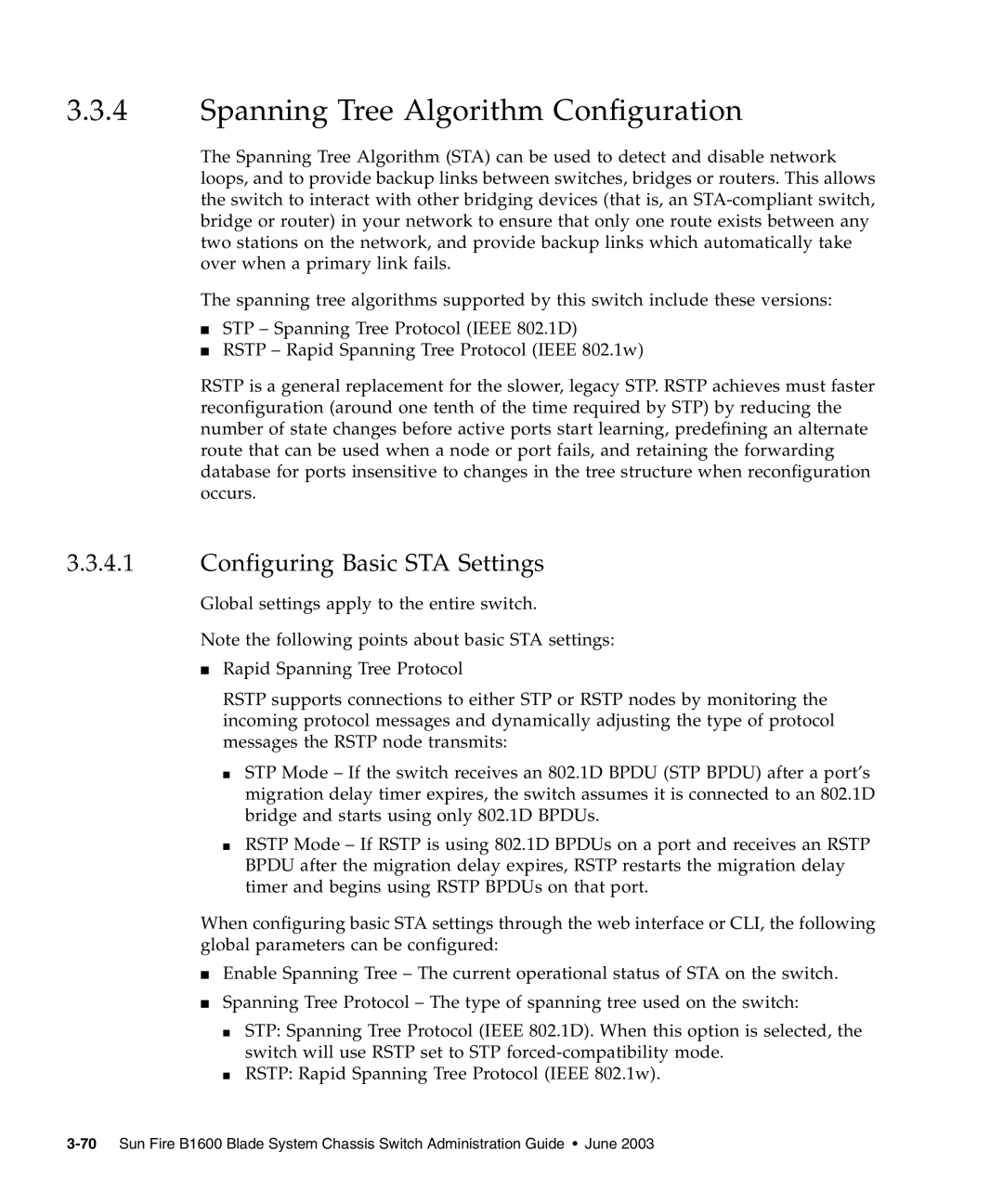3.3.4Spanning Tree Algorithm Configuration
The Spanning Tree Algorithm (STA) can be used to detect and disable network loops, and to provide backup links between switches, bridges or routers. This allows the switch to interact with other bridging devices (that is, an
The spanning tree algorithms supported by this switch include these versions:
■STP – Spanning Tree Protocol (IEEE 802.1D)
■RSTP – Rapid Spanning Tree Protocol (IEEE 802.1w)
RSTP is a general replacement for the slower, legacy STP. RSTP achieves must faster reconfiguration (around one tenth of the time required by STP) by reducing the number of state changes before active ports start learning, predefining an alternate route that can be used when a node or port fails, and retaining the forwarding database for ports insensitive to changes in the tree structure when reconfiguration occurs.
3.3.4.1Configuring Basic STA Settings
Global settings apply to the entire switch.
Note the following points about basic STA settings:
■Rapid Spanning Tree Protocol
RSTP supports connections to either STP or RSTP nodes by monitoring the incoming protocol messages and dynamically adjusting the type of protocol messages the RSTP node transmits:
■STP Mode – If the switch receives an 802.1D BPDU (STP BPDU) after a port’s migration delay timer expires, the switch assumes it is connected to an 802.1D bridge and starts using only 802.1D BPDUs.
■RSTP Mode – If RSTP is using 802.1D BPDUs on a port and receives an RSTP BPDU after the migration delay expires, RSTP restarts the migration delay timer and begins using RSTP BPDUs on that port.
When configuring basic STA settings through the web interface or CLI, the following global parameters can be configured:
■Enable Spanning Tree – The current operational status of STA on the switch.
■Spanning Tree Protocol – The type of spanning tree used on the switch:
■STP: Spanning Tree Protocol (IEEE 802.1D). When this option is selected, the switch will use RSTP set to STP
■RSTP: Rapid Spanning Tree Protocol (IEEE 802.1w).
